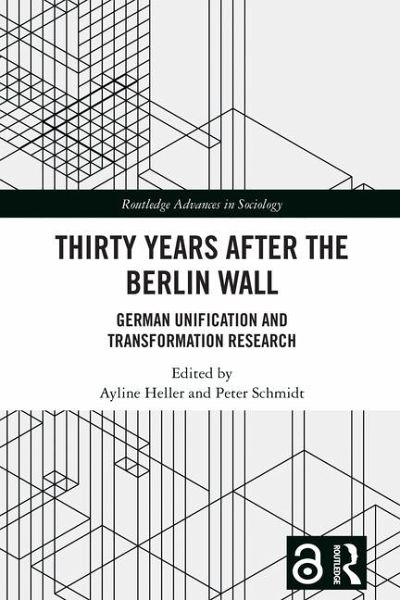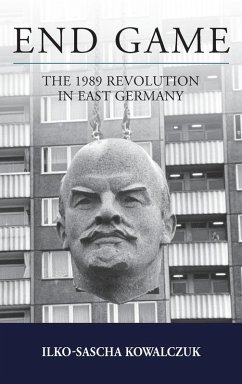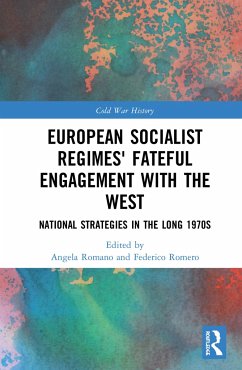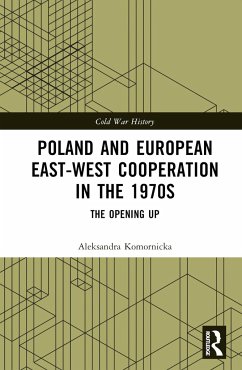
Thirty Years After the Berlin Wall
German Unification and Transformation Research
Herausgegeben: Heller, Ayline; Schmidt, Peter
Versandkostenfrei!
Versandfertig in 6-10 Tagen
154,99 €
inkl. MwSt.
Weitere Ausgaben:

PAYBACK Punkte
77 °P sammeln!
This book examines the increasing body of research dedicated to the lasting differences between the former separate states of the Federal German Republic (FRG) and the German Democratic Republic (GDR). Thirty years after the fall of the Berlin Wall, it takes a broad view on German unification and transformation research.Transformation and unification processes in East and West Germany are still ongoing, and they may serve as a model for social change and its political, economic, and psychological consequences. Using advanced statistical methods of analysis, this edited volume provides insights...
This book examines the increasing body of research dedicated to the lasting differences between the former separate states of the Federal German Republic (FRG) and the German Democratic Republic (GDR). Thirty years after the fall of the Berlin Wall, it takes a broad view on German unification and transformation research.
Transformation and unification processes in East and West Germany are still ongoing, and they may serve as a model for social change and its political, economic, and psychological consequences. Using advanced statistical methods of analysis, this edited volume provides insights into the valuable contextualization of individual and social phenomena that current research on German unification and transformation is producing.
Following the open science mindset using code and data, the authors investigate temporal trends in (1) mental health, (2) political attitudes, and (3) work and family life. It explores changes in mental health and political attitudes, as well as continued differences in work and family arrangements, that may stem from heterogeneous experiences within the systems and during the transformation process. This book will appeal to scholars and students from the disciplines of sociology, political science, public health, social psychology, psychology, and communication science interested in postsocialist transition processes and temporal changes in individuals and societies.
Transformation and unification processes in East and West Germany are still ongoing, and they may serve as a model for social change and its political, economic, and psychological consequences. Using advanced statistical methods of analysis, this edited volume provides insights into the valuable contextualization of individual and social phenomena that current research on German unification and transformation is producing.
Following the open science mindset using code and data, the authors investigate temporal trends in (1) mental health, (2) political attitudes, and (3) work and family life. It explores changes in mental health and political attitudes, as well as continued differences in work and family arrangements, that may stem from heterogeneous experiences within the systems and during the transformation process. This book will appeal to scholars and students from the disciplines of sociology, political science, public health, social psychology, psychology, and communication science interested in postsocialist transition processes and temporal changes in individuals and societies.














